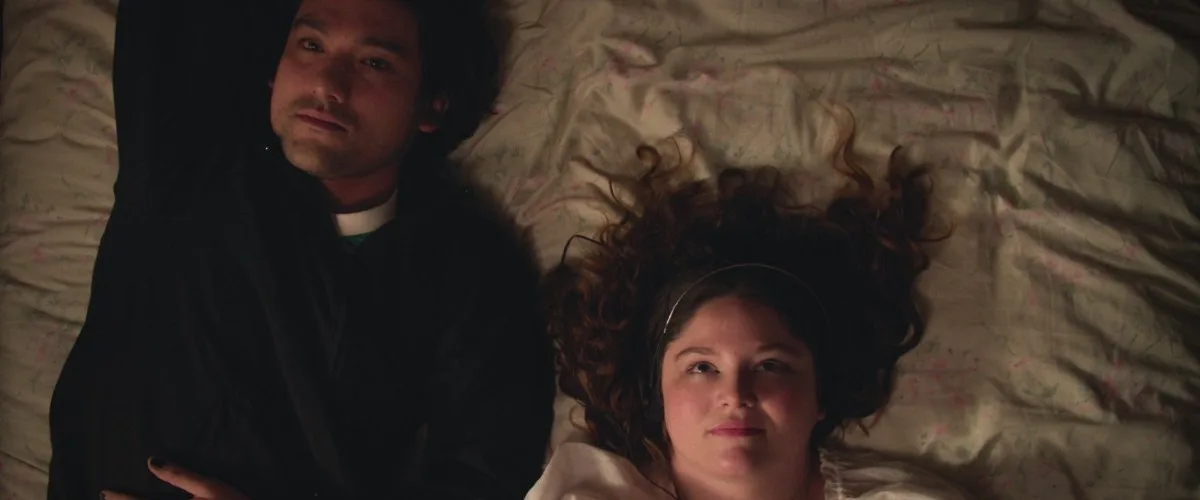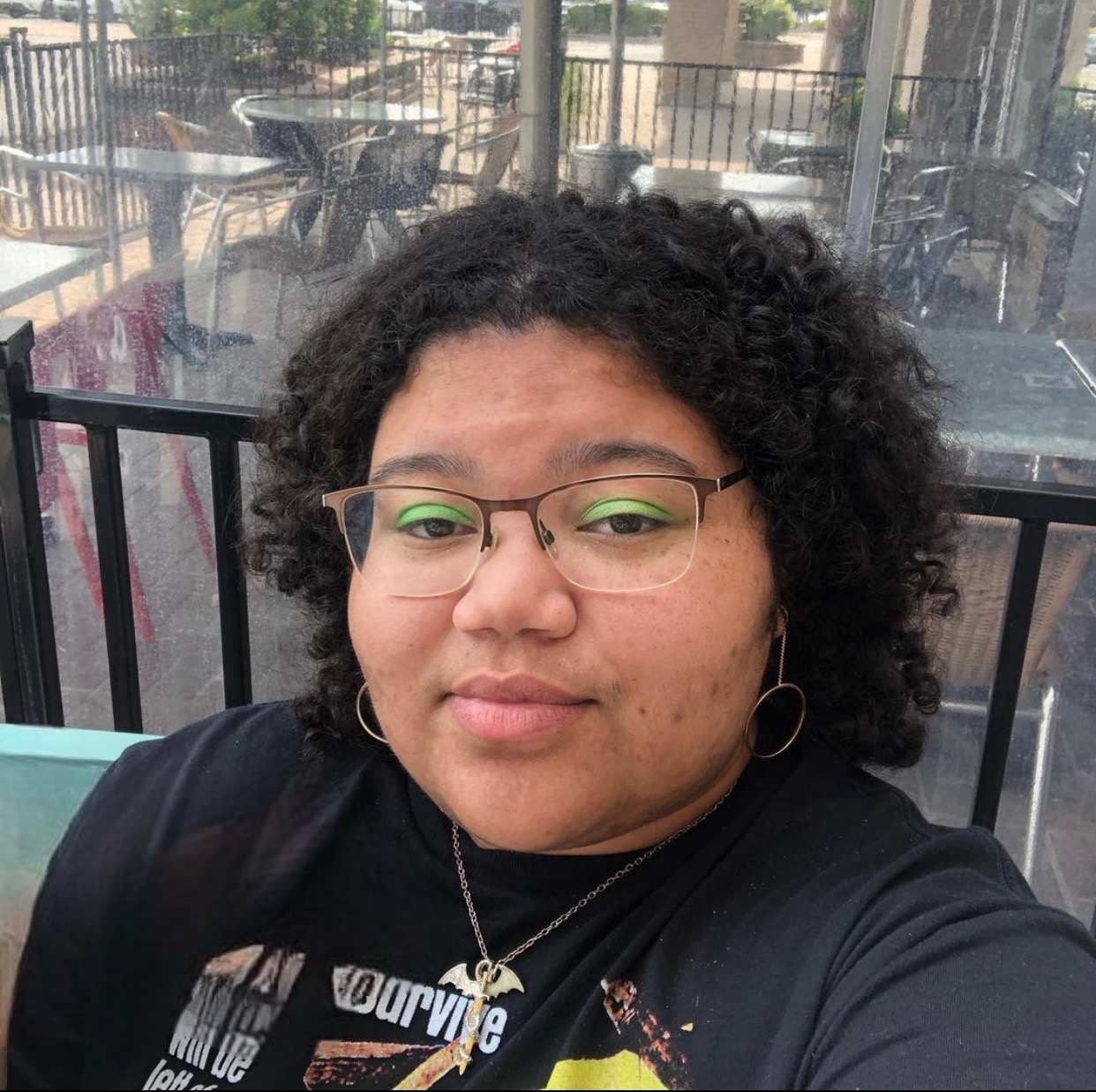“Isn’t adulthood just a series of things we don’t want to do, but we have to?” Jessica (Megan Stalter), the protagonist of Lena Dunham’s new series, asks her new boyfriend Felix (Will Sharpe) early on in their relationship. “No,” he responds. “I think it’s like…trying to make sure you can do the things that you actually do want to do.” Their circumstances have shaped the adulthood in which these two characters exist. It’s a fraught and tightly coiled life that threatens to shatter with each passing moment, until they find reprieve in their shared apartment, within each other’s arms, and beneath the solace of their cozy bedsheets.
This comforting home isn’t where we first meet the two, though. Instead, the series initially transports us straight onto the London streets, backed by a needle drop of Fergie’s 2006 hit song “London Bridge.” After leaving New York City after a horrific breakup, Jessica continues to be haunted by her lost love overseas, as his new Influencer girlfriend, Wendy (Emily Ratajkowski), posts their engagement video online. After sobbing over the news, Jessica ventures out to a pub alone, where she meets Felix, a musician in a small indie band who has his own baggage. He walks her home, and after an incredibly awkward kiss that forces Jessica to kick him out nicely, she sets her nightgown on fire with a candle.
As the only person she knows in London, Felix picks her up from the hospital. The two quickly fall into bed with each other, clearly feeling the chemistry between them despite their aversions to any meaningful relationships. What follows is a quick romantic affair, filled with bumbling revelations and teary arguments, forcing the two to ponder over a question that is affecting nearly everyone in the modern age: are any of us worthy of love? We watch as each episode sees the two characters self-sabotage their relationship, as well as their careers and friendships, and march along through life as if each day is their first on earth.
“Too Much” perfectly toes the line between drama and comedy, unspooling the most severe moments of Jessica and Felix’s pasts, but never leaving the audience with enough despair that they can’t laugh by the end of each episode. Each time Stalter and Sharpe argue, they inflect their delivery with a sharp wit that breaks down even the most pressing cores of their fights, allowing the audience to find humour in just how messy and confused Jessica and Felix have become in each other’s presence. While it’s a smaller story than her hit series “Girls,” Dunham quickly reminds us why she was heralded as one of the great writers of her generation.
She unveils her viewers’ insecurities with precision, unmasking the woes of Millennials and Gen Z, unlike any other television show has done. Dunham’s willingness to explore the mean and messy parts of her characters is what makes her work undeniably fresh, even when it tends to fall into typical tropes here and there. Neither Jessica nor Felix is perfect; they’re both deeply traumatized human beings who find communication to be an almost apocalyptic event. Where Jessica is obsessed with reiterating her daily life to her phone’s camera, Felix bottles everything up until he threatens to destroy himself. Despite their aversion to communicating, they still share a tender love that is at times so disarming, it makes watching the show nearly painful.
Stalter and Sharpe are an on-screen match made in heaven, and the delicate nature of their characters’ relationship couldn’t be safer in anyone else’s hands. Alongside them is an ensemble of actors who consistently steal the show every time they appear on screen. There’s Naomi Watts as the cocaine-addicted wife of Jessica’s boss, Jonno (Richard E. Grant); Adèle Exarchopoulos as Felix’s deadpan French ex, Polly; and Andrew Scott as a nihilistic (and pervy) film director. Although they’re never in the series for long, each of these performers is given space to showcase their comedic talents, which many of them aren’t afforded enough opportunity to explore in their careers, making the series an engaging and often sidesplitting experience beyond the central story at hand.
“There’s something about you that makes me want to take care of you,” Felix tells Jessica early on in their relationship. This declaration is shared with an earnestness that is not often found in the modern landscape of television romances, unbridled and without sarcasm towards the woman Felix is speaking to. She’s an open book, almost too pure of heart for the droll and brutal world that he was born into. It threatens to disarm him, yet he takes it in stride, seeing her for who she is and loving the parts of her that were shunned back in New York. A woman like Jessica is one we have often been told cannot be loved in romcoms; she’s too loud and abrasive, whereas her counterparts are calm and relatively passive. Yet Dunham challenges not only the notions of the genre in which Jessica is present, but also the modern world in which women like her exist.
Both she and Felix are “Too Much” according to the capitalist and individualistic society that has been built around them, and in turn has been built around the young adult viewers for whom this series has undeniably been made. Dunham has crafted a piece that explores the intricacies and faults of certain kinds of love, challenging notions of who is deserving of what kind of love. In a world that so often wants to stifle us, planting its feet upon our shoulders so we lose every semblance of uniqueness within us, Jessica and Felix rebel against the norm by finding a complicated and messy love within each other. By the end of the series, you can’t help but ask yourself if you’ll ever be lucky enough to find the same.
All episodes were screened for review.




















